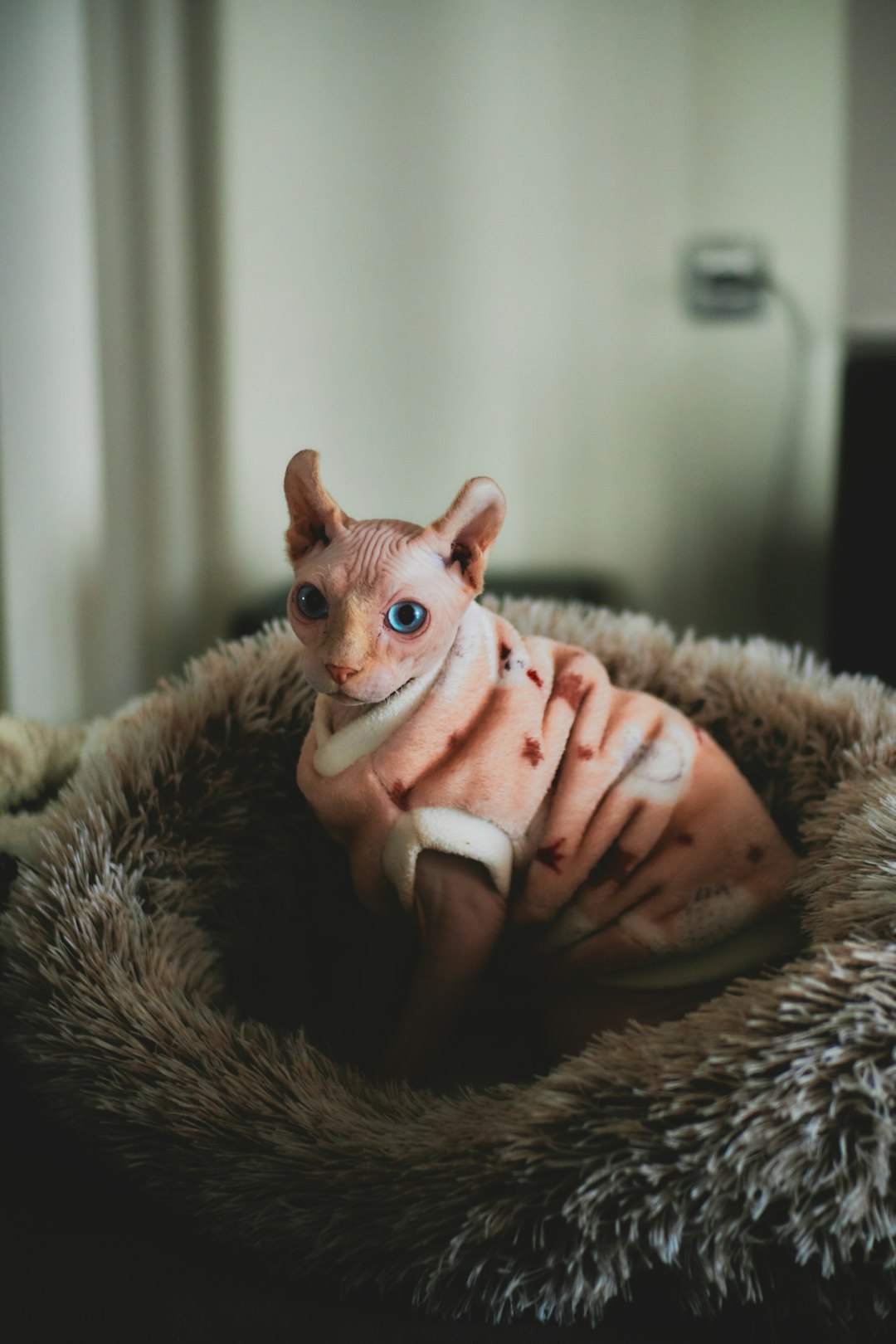Cats are fascinating creatures, often displaying a range of unique behaviors that intrigue their owners. One such behavior is hissing, which can leave cat lovers wondering why do cats hiss in the first place. Understanding the underlying reasons for this vocalization is essential for deciphering your feline’s feelings. From fear and anxiety to territorial instincts, multiple factors contribute to this reaction. By learning more about these common triggers, you can foster a better relationship with your furry companion and create a calmer environment for both of you.
Understanding Cat Hissing Behavior
Understanding why do cats hiss is crucial for interpreting your feline friend’s emotions. Hissing serves as a warning signal, conveying discomfort, fear, or aggression. Here’s how to break down this behavior:
- Vocalization: Hissing is not just noise; it can be an indicator of a cat’s emotional state. A hiss often sounds like a combination of a growl and a sharp exhale.
- Body Language: Observe their posture. An arched back, puffed fur, and flattened ears usually accompany hissing, indicating heightened tension.
- Context Matters: Situational triggers play a significant role. Hissing might occur during introductions to new pets, when startled, or when feeling cornered.
Common Reasons Cats Hiss:
| Reason | Description |
|---|---|
| Fear | Encountering unknown stimuli or threats. |
| Territorial Defense | Protecting their space from intruders. |
| Pain | Discomfort from injuries or medical conditions. |
Ultimately, exploring why do cats hiss helps owners address their pets’ needs and create a safe environment. Understanding this instinctive behavior is vital for fostering a harmonious relationship with your cat.
Common Triggers for Hissing in Cats
Understanding why do cats hiss involves recognizing different triggers that prompt this behavior. Hissing acts as a warning sign, indicating that a cat feels threatened or uncomfortable. Here are some common triggers:
- Fearful Situations: Sudden loud noises or unfamiliar environments can scare a cat, prompting a hiss.
- Other Animals: Encountering other animals intruding on their space often leads to defensive hissing.
- Handling by Humans: Some cats dislike being restrained or held, causing them to hiss when they feel cornered.
- Pain or Discomfort: If a cat experiences pain, it may hiss to express discomfort during handling or movement.
Comparison Table: Common Hissing Triggers
| Trigger | Response | Description |
|---|---|---|
| Fearful Situations | Hissing and backing away | Cats hiss when alarmed by sudden changes. |
| Encountering Other Animals | Hissing with arched back | Cats defend their territory through hissing. |
| Handling by Humans | Hissing and swatting | Annoyance or fear of being held. |
| Pain or Discomfort | Hissing and aggression | Warning signal when in pain or injury. |
By recognizing these triggers, you can better understand why do cats hiss and help mitigate situations that cause stress for your feline friend.
Fear and Anxiety Response
One of the primary reasons why do cats hiss is due to fear or anxiety. Hissing serves as a warning, signaling that a cat feels threatened. Here are some scenarios where fear-induced hissing is common:
- Unfamiliar Environments: Moving to a new home or a visit to the vet can overwhelm cats.
- Loud Noises: Sudden sounds, like fireworks or thunder, may trigger hissing as a defense mechanism.
- Strange People or Animals: Cats may hiss when they perceive an unknown presence encroaching on their space.
Understanding Their Behavior
When addressing why do cats hiss from a fear perspective, pay attention to their body language:
| Behavior | Interpretation |
|---|---|
| Ears Flat | Feeling threatened |
| Arched Back | Attempting to appear larger |
| Tail Puffing | Marking their territory in fear |
In conclusion, recognizing these fearful hissing behaviors is crucial. Providing a calm and secure environment helps alleviate anxiety and reduces the likelihood of hissing. Understanding why do cats hiss in these situations can foster a safer space for your feline friend.
Territorial Defense Mechanism
When exploring the question, why do cats hiss, one of the most common reasons is their innate territorial defense mechanism. Cats are natural hunters and solitary animals, often marking their territory to establish dominance. Here’s how territorial instincts manifest through hissing:
- Marking Territory: Cats often use scent markings, but hissing signals ownership and warns other animals to stay away.
- Warning Signs: Hissing serves as a clear message. If another cat or animal encroaches on their space, a cat may hiss to deter potential threats.
- Body Language: An arched back and upright fur often accompany hissing, indicating a heightened state of readiness for confrontation.
Comparison of Hissing Triggers
| Trigger | Hissing Response |
|---|---|
| New cat in the home | Strong hissing |
| Stray animals outside | Intense hissing |
| Moving objects | Cautious hissing |
Understanding why do cats hiss in territorial situations can help owners respect their feline friend’s space. Recognizing these behaviors assists in creating a safe environment, fostering tranquility and reducing stress for your cat.
Protection of Food or Resources
One of the most common reasons for hissing in cats is the protection of food or resources. Cats are naturally territorial animals, and their instinct to safeguard what they perceive as valuable can trigger a hissing response.
Here are some key points explaining why do cats hiss in this context:
- Instinctual Behavior: Hissing serves as a warning signal to potential intruders, indicating that they should stay away from the food or resources.
- Resource Management: Cats may hiss when they feel threatened while eating or when another pet approaches their food bowl.
- Defensive Posture: This behavior may escalate to more aggressive actions if their warning goes unheeded.
Comparison of Cat Responses:
| Response Type | Description | Noise Level |
|---|---|---|
| Hissing | Warning to stay away | Moderate |
| Growling | More aggressive warning; can escalate | High |
| Purring | Sign of contentment and relaxation | Low |
Knowing why do cats hiss regarding food protection helps cat owners respect their pet’s boundaries and ensure a harmonious environment. Always supervise feeding time, especially in multi-pet households, to minimize the potential for hissing and stress.
Motherly Instincts and Hissing
Understanding why do cats hiss involves recognizing the different scenarios where this behavior surfaces. One important context is maternal instincts. Mother cats often hiss to safeguard their kittens, employing this vocalization as a warning signal to potential threats.
Key Points on Motherly Instincts:
- Protective Behavior: A mother cat will hiss at intruders or unfamiliar animals approaching her litter. This instinct is rooted in their desire to keep their young safe.
- Establishing Boundaries: Hissing helps to establish distance, signaling to others when they are too close to her kittens.
- Stress Signals: Hissing can also indicate the mother cat is feeling overwhelmed by her responsibilities, particularly if she perceives danger.
Comparison Table: Reasons for Hissing
| Scenario | Purpose |
|---|---|
| Motherly instincts | Protecting kittens |
| Fear and anxiety | Indicating discomfort or perceived threats |
| Territorial defense | Warning off intruders |
In conclusion, when evaluating why do cats hiss, it’s essential to consider the role of maternal instincts in hissing behavior. Understanding this can foster better communication and care for mother cats and their kittens.
Socialization Issues and Hissing
Understanding why do cats hiss often leads us to socialization challenges. Cats are inherently social animals, but improper socialization can cause them to hiss when they feel threatened or uncomfortable around people or other pets.
Here are common socialization issues that may trigger hissing:
Lack of Early Exposure: Kittens require positive interactions with humans and other animals during their critical development period (2-9 weeks). If they miss this window, they may struggle to adapt to new experiences.
Traumatic Experiences: Cats that have had negative encounters with people or other animals may associate hissing as a defensive response to protect themselves.
Aggressive Play: If playtime is too rough or involves aggressive behaviors, cats may misinterpret friendly actions as threats, leading to hissing.
To address socialization challenges:
- Gradual Introduction: Slowly expose your cat to new environments or animals.
- Positive Reinforcement: Use treats and praise to associate new experiences with something enjoyable.
Recognizing these factors can help us understand why do cats hiss, allowing us to provide a nurturing and safe environment for our furry companions.
Pain and Discomfort Indicators
Understanding why do cats hiss can extend beyond behavioral triggers like fear or territoriality; it can also be a clear signal of pain or discomfort. When a cat experiences physical discomfort, it often resorts to hissing as a defense mechanism. Here are key indicators:
- Hissing Instead of Growling: While growling may signal annoyance, hissing often indicates heightened distress or pain.
- Body Language: Observe your cat’s posture. A tense body, tucked tail, and flattened ears often accompany hissing when they’re in pain.
- Withdrawal: Cats in pain may isolate themselves, showing less interest in interacting with you or their environment.
Comparison of Hissing and Other Signals
| Behavior | Meaning |
|---|---|
| Hissing | Pain or distress |
| Growling | Annoyance or warning |
| Purring | Contentment or self-soothing |
| Hiding | Fear or discomfort |
Recognizing these signs can help you determine if your cat is simply communicating their feelings or if it’s time to seek veterinary assistance. Being aware of why cats hiss in the context of pain ensures that you respond appropriately, fostering their well-being and comfort.
Communication with Other Animals
One significant reason for hissing is communication with other animals. Cats often use hissing to convey their discomfort or displeasure towards another pet or unfamiliar animal. Understanding why do cats hiss in these situations helps to recognize their emotions and reactions. Here are some key points:
Establishing Boundaries: Hissing serves as a warning signal. It informs other animals to keep their distance, ensuring the cat feels safe and secure.
Defensive Mechanism: When confronted by a potential threat, cats hiss to intimidate the aggressor. This behavior shows that they are prepared to defend themselves if necessary.
Social Hierarchy: In multi-pet households, hissing can indicate issues related to social status. Dominant cats might hiss to assert their authority, while submissive ones may do so when feeling threatened.
Recognizing these cues is crucial in understanding why do cats hiss. Interventions such as gradual introductions or creating safe spaces can alleviate tension and foster better relationships among pets.
When to Seek Professional Help for Hissing
Understanding why do cats hiss is crucial for cat owners, especially when hissing becomes frequent or intense. Hissing can indicate a variety of stressors, but if your cat exhibits excessive hissing, it might be time to consider professional help. Here are a few situations to look out for:
- Persistent Hissing: If your cat hisses consistently without obvious triggers, it may signal an underlying issue that needs assessment.
- Aggression: Hissing paired with aggressive behavior could indicate fear or pain — both warrant a vet’s evaluation.
- Changes in Behavior: Sudden changes in your cat’s personality or habits, especially if accompanied by hissing, signal the need for a professional opinion.
- Physical Signs of Distress: Observe for signs of pain, such as limping or changes in eating habits, along with hissing.
By being attentive, you can effectively address the reasons behind your cat’s behavior, ultimately fostering a more harmonious relationship. Remember, understanding why do cats hiss can help catch problems early and ensure your feline friend remains healthy and happy.



